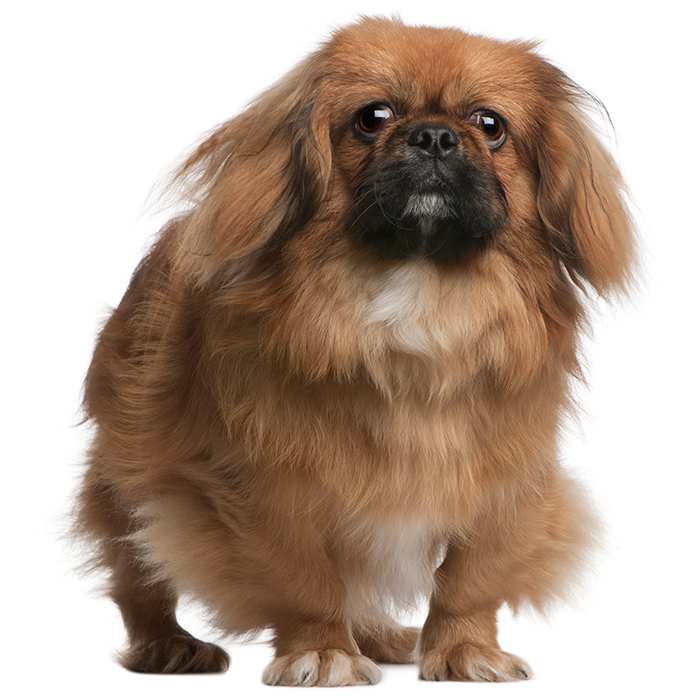Pembroke Welsh Corgi
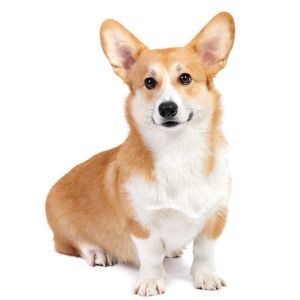

| Recommended for | Active owners who can provide regular exercise and training |
| Breed Classification | Herding Group |
| Other names | PWC, Corgi, Welsh Corgi, Pembroke |
| Lifespan | 12-15 years |
| Size | Small |
| Temperament | Playful, friendly, outgoing, tenacious, bold, protective |
| Intelligence | Above average |
| Tendency to bark | High, especially when alerting to unfamiliar sounds or movement. |
| Maintenance Level | Moderate grooming needs, medium food costs |
| Health Risk | This breed has an around average probability of having health issues in its lifetime, hence it is one of the more affordable breeds to insure. |
Insuring a Pembroke Welsh Corgi?
Get our award-winning Nose-to-Tail Cover with up to $30k annual benefit limit, up to 90% of eligible vet bills back, and no sub-limits.
Get a quick quote
Is this breed right for you?
Try our breed selector quiz to find out your best matching breed!
Insuring a Pembroke Welsh Corgi?
Get our award-winning Nose-to-Tail Cover with up to $30k annual benefit limit, up to 90% of eligible vet bills back, and no sub-limits.
Get a quick quote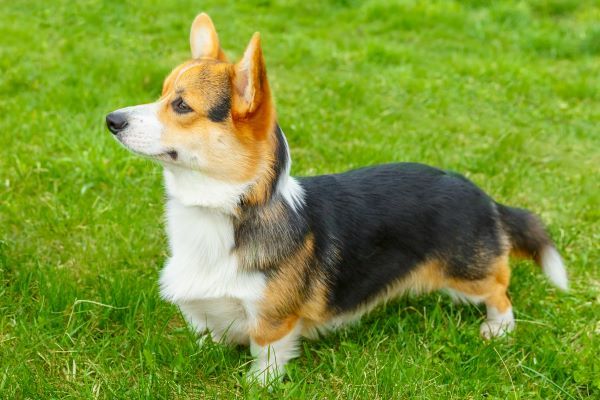
Breed history of Pembroke Welsh Corgis
Legend has it that the Pembroke Welsh Corgi is an “enchanted” dog, used by the fairies and elves of Wales to pull fairy coaches, work fairy cattle, and serve as a steed for the fairy warriors. In reality, Pembrokes have been used by the Welsh as herding dogs, family companions, and guardians of the farm.
It is believed that their ancestry dates back to at least the tenth century, descended either from the Vallhunds (Swedish cattle dogs possibly brought to Pembrokeshire by the Vikings) or from the ancestors of the present-day Schipperkes and Pomeranians that were brought to Wales by Flemish weavers. Often used to herd cattle, the Pembroke Welsh Corgi could nip at their heels and work his way through herds while staying low to the ground.
In the 1920’s Corgis were recognized as pure-bred dogs in the United Kingdom. In 1934 the Pembroke and Cardigan Corgis were recognized by the English Kennel Club as separate breeds. American Kennel Club recognition of the two distinct breeds also occurred in that same year.
Their fame soared when Queen Elizabeth II became a champion of the breed, owning several Corgis during her tenure and solidifying their place as beloved pets.
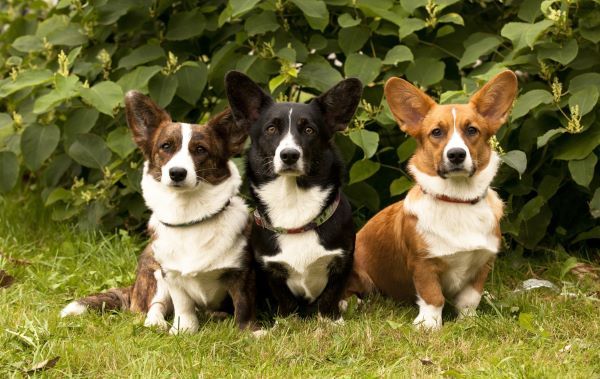
Physical description of Pembroke Welsh Corgis
The Pembroke Welsh Corgi is a small but sturdy breed with an athletic build that allows them to be surprisingly quick and agile. Their long body, deep chest, and strong legs give them the endurance needed for an active lifestyle, while their short stature helps them stay low to the ground, making them efficient herders. Their overall appearance is one of confidence and alertness, with an expressive face that showcases their keen intelligence and lively personality. Large, erect ears and bright, inquisitive eyes, along with a foxy-shaped muzzle imbue a confident and alert appearance.
The Pembroke Welsh Corgi has a thick, weather-resistant double coat. The dense undercoat provides insulation, while the slightly coarse outer layer helps repel dirt and moisture. Their coat comes in a variety of colours, including red, sable, fawn, and black & tan, often with white markings and with slight variations in shading, including deeper reds, lighter tans, and blended sable tones.
| Weight range | 11–14 kg |
| Height range | 25 to 30 cm |
| Colours | Predominantly fawn, black & tan, black & white, red, or sable |
| Coat length | Medium |
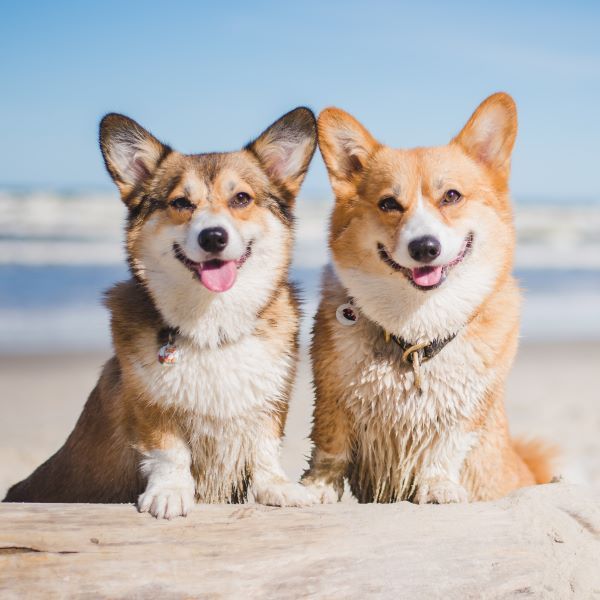
Pembroke Welsh Corgi personality and temperament
Pembroke Welsh Corgis are full of personality; spirited, intelligent, and affectionate little dogs that quickly win over their owners. Originally bred for herding, they have a natural drive to stay active, sharp instincts, and a keen awareness of their surroundings. Don’t let their small size fool you – Corgis are confident, bold, and sometimes even a little stubborn! Their playful and energetic nature makes them great companions for active families, especially those who enjoy keeping their pup engaged both physically and mentally. While they have an independent streak, they’re eager to please and respond well to positive reinforcement, especially if treats are involved.
Corgis are incredibly loyal and love being part of the family’s daily routine. They are the type of dog that follows you from room to room, always wanting to be where the action is. Though they’re friendly and social, they also have a strong protective instinct and won’t hesitate to sound the alarm if they hear something suspicious, making them excellent little watchdogs.
Corgis are highly adaptable and can thrive in various living spaces, from apartments to homes with large yards, as long as they get plenty of exercise and mental stimulation. However, they don’t enjoy being left alone for long periods. Without enough interaction and stimulation, a bored Corgi can quickly turn into a mischievous one, finding creative ways to entertain themselves, which may not always be ideal for your furniture.

Pembroke Welsh Corgis with kids and other pets
Pembroke Welsh Corgis are affectionate, playful, and full of personality, making them a fantastic choice for families with children. Their loyalty and protective instincts help them form deep bonds with kids, often watching over them like little guardians. With their boundless energy and love for playtime, Corgis bring plenty of fun to a household. However, their herding instincts may cause them to gently nip at children’s heels—a behaviour that’s not meant to be aggressive but should be addressed through proper training and supervision.
When it comes to other pets, Corgis typically get along well, especially if they’ve been raised together from a young age. These social dogs thrive on companionship but can sometimes be a bit headstrong, particularly around other dogs. Early socialisation helps them develop good manners and ensures they play nicely with fellow furry family members. Because of their strong prey drive, it’s important to be cautious when introducing them to small pets like rabbits or guinea pigs.
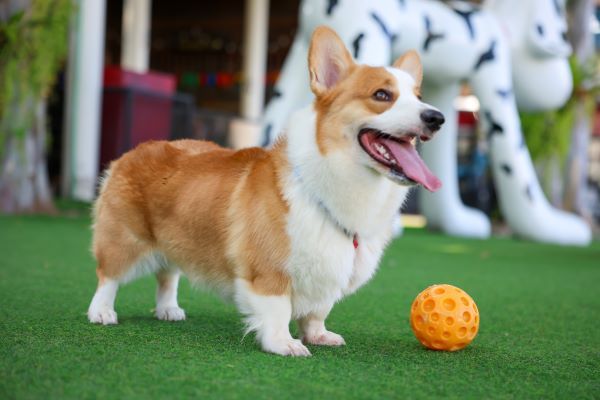
Pembroke Welsh Corgi training and exercise
Pembroke Welsh Corgis may be small, but they have energy to spare. Originally bred to herd cattle, they are lively dogs that require daily exercise to stay fit and prevent boredom. Without enough activity, they can become restless and develop habits like excessive barking or chewing. Regular walks, games of fetch, and agility exercises are excellent ways to keep them physically engaged, while puzzle toys and interactive play help challenge their sharp minds. Since they have a natural herding instinct, they also enjoy activities that allow them to chase or round up objects in a structured way.
Training a Corgi requires patience, consistency, and positive reinforcement. These intelligent dogs learn quickly but can be stubborn, so early socialisation and clear boundaries are essential. Reward-based training with treats and praise works best, keeping them motivated and eager to listen. Corgis may also try to nip at heels, a herding behaviour that should be gently corrected. Short, engaging training sessions will help them develop good manners while maintaining their playful personality.
| Energy level | Moderate |
| Exercise requirements | Moderate |
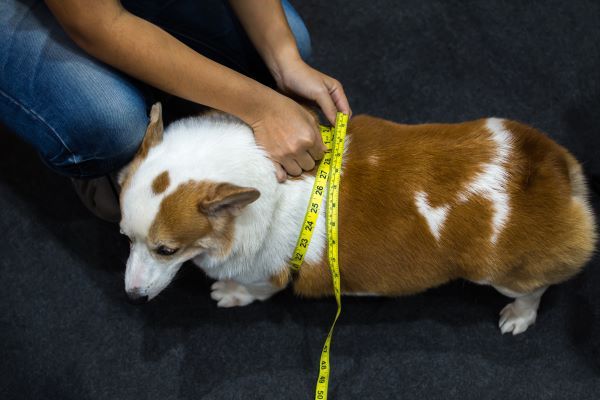
Pembroke Welsh Corgi feeding and nutrition
Feeding a Pembroke Welsh Corgi the right way is crucial for their overall health, energy levels, and longevity. Their diet should be rich in high-quality protein, healthy fats, and essential vitamins to support their active lifestyle and prevent weight gain. Puppies need nutrient-dense food for growth, while adult Corgis require a balanced diet to maintain energy without excess calories. Senior Corgis benefit from lower-calorie food and joint supplements to support mobility. Whether feeding dry kibble, wet food, or a raw diet, ensuring proper portion control and avoiding excessive treats is key to keeping them at a healthy weight.
Since Corgis are prone to obesity and joint issues, careful feeding habits and regular exercise are essential. Measured portions, feeding twice a day, and choosing healthy treats can help prevent unnecessary weight gain. Some Corgis may also have dietary sensitivities or allergies, requiring special food adjustments. Regular vet check-ups ensure their diet remains appropriate for their age and health needs.
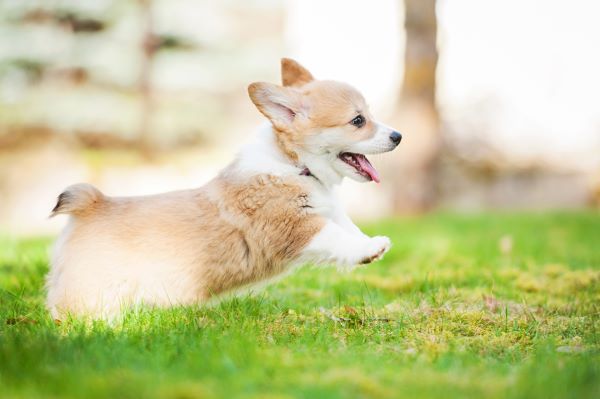
Pembroke Welsh Corgi care and grooming
Pembroke Welsh Corgis have a thick double coat that sheds year-round, with heavier shedding during seasonal changes. Regular grooming is key to keeping their coat healthy and minimising loose hair around the house. Brushing them two to three times a week helps prevent matting, removes excess fur, and keeps their coat looking great. When shedding season hits in the spring and autumn,it’s important to brush them more often to manage the extra hair. Using a high-quality de-shedding tool or slicker brush can make a big difference.
Bathing should be done as needed, depending on how active they are and how dirty they get, but be aware that overbathing can strip their coat of essential oils. Keeping their nails trimmed is important for their comfort and mobility, while regular dental care supports good oral health. Corgis don’t need much trimming, but a little cleanup around their paws and ears can help them look tidy. Avoid shaving their coat, as their double-layered fur helps regulate body temperature in both hot and cold weather.
Health issues for Pembroke Welsh Corgis
- Hip Dysplasia is an inherited condition that affects the development of the hip joint, leading to instability and arthritis over time. While genetics play a role, factors like rapid growth, excessive weight, and improper exercise can make it worse. Signs include lameness, difficulty standing, and reluctance to move around.
- Intervertebral Disc Disease (IVDD) is a spinal condition where the cushioning discs between vertebrae degenerate or rupture. Due to their long backs, Corgis are at a higher risk of IVDD, which can cause pain, nerve damage, and even paralysis. Early signs include stiffness, difficulty jumping, and weakness in the hind legs. Keeping their weight in check and limiting high-impact activities can help reduce the risk.
- Degenerative Myelopathy is aprogressive disease that affects the spinal cord, leading to hind limb weakness, loss of coordination, and eventually, paralysis. It’s an inherited condition requiring two copies of a mutated gene to develop. Symptoms start with stumbling and difficulty standing and worsen over time. While there’s no cure, physical therapy and supportive care can help maintain mobility for as long as possible.
- Progressive Retinal Atrophy (PRA) is an inherited eye disease which causes gradual vision loss, starting with night blindness and eventually leading to total blindness. While there’s no treatment, dogs with PRA can adapt well with proper care and a stable environment.
- Obesity can occur in the breed. Because of their small frame and long back, carrying extra weight puts serious strain on a Corgi’s joints and spine. Overfeeding and lack of exercise can lead to obesity, increasing the risk of arthritis, diabetes, and heart disease. A balanced diet and regular exercise are key to keeping them at a healthy weight.
- Hypothyroidism – This condition occurs when the thyroid gland doesn’t produce enough hormones, slowing down metabolism. Common signs include weight gain, lethargy, hair loss, and skin problems. It’s usually managed with medication and regular veterinary check-ups.
- Epilepsy – Some Corgis may develop epilepsy, a neurological disorder that causes recurring seizures. The exact cause isn’t always known, but it’s believed to have a genetic link. Seizures can range in severity, but with proper diagnosis and medication, most affected dogs can live relatively normal lives.
Not all conditions are covered by Pet Insurance. For details of Bow Wow Meow Pet Insurance cover, refer to the Product Disclosure Statement.
Thinking about insuring a Pembroke Welsh Corgi
Thinking about insuring a Pembroke Welsh Corgi
Learn moreThinking about insuring a Pembroke Welsh Corgi
Learn moreFree engraved pet ID tag on sign up3
Customer Satisfaction
21 day cooling off
24/7 Live Vet^ care

GapOnly® in vet claims
MORE INFORMATION
The Welsh Corgi Club of Victoria: http://corgiclubvic.com/
Pembroke Welsh Corgi Club of America: https://pwcca.org/\
Welsh Corgi League: https://www.welshcorgileague.org/




